A Systematic Review and Bibliometric Analysis of Studies on Generation Z and the Hotel Industry: Past, Present and Future Agenda
Abstract
1. Introduction
2. Literature Review
2.1. Gen Z and Generational Theory in Tourism and Hospitality System
2.2. Characteristics of Gen Z as Consumer Within Hospitality Systems
2.3. Gen Z as Employees Within Hospitality Systems
2.4. Gen Z and Systematic Studies
3. Methodology
3.1. The PRISMA 2020 Guideline
3.2. Eligibility Criteria and Screening
3.3. Data Cleaning and Analytical Tools
4. Results
4.1. Performance Analysis
4.1.1. Publications by Year
4.1.2. Most Active Journals
4.1.3. Most Active Contributors: The Authors and Intuitions
4.1.4. Corresponding Author’s Countries
4.1.5. Countries’ Scientific Production
4.1.6. Key Readings Informed by Highly Cited Research
4.2. Research Methods and Variables Tested
4.3. Theoretical Frameworks
4.4. Science Mapping and Future of Research Trends on Gen Z and Hotel Industry
4.4.1. Foundational Knowledge Through a Keyword Co-Occurrence Analysis
4.4.2. Topical Trend in Hotel Industry
4.4.3. Thematic Trends of Hotel Industry and Gen Z
5. Discussion and Conclusions
5.1. Discussion
5.2. Conclusions
5.3. Theoretical Implications
5.4. Practical Implications
5.5. Limitations
Supplementary Materials
Author Contributions
Funding
Data Availability Statement
Conflicts of Interest
Abbreviations
| eWOM | electronic word-of-mouth |
| Generation Z | Gen Z |
| Theory of Planned Behavior | TBP |
| Corporate Social Responsibility | CRS |
Appendix A. Grouped Theories & Frequencies
| 1. Technology Adoption & Acceptance Theories |
| Technology Acceptance Model (TAM)—7 |
| Unified Theory of Acceptance and Use of Technology (UTAUT)—4 |
| Unified Theory of Acceptance and Use of Technology 2 (UTAUT2)—1 |
| Innovation Diffusion Theory (IDT)—2 |
| Artificially Intelligent Device Use Acceptance (AIDUA) Framework—2 |
| Technology Acceptance Models (TAM/etc.)—1 |
| Technology-Adoption Determinants—1 |
| Service Quality–Driven Technology Adoption Lens—1 |
| Trust-Based Acceptance Framework—1 |
| Technology Expectations–Satisfaction Framework—1 |
| Virtual Tourism Adoption/Complementarity—1 |
| 2. Behavioral & Psychological Theories |
| Theory of Planned Behavior (TPB)—14 |
| Social Cognitive Theory (SCT)—1 |
| Protection Motivation Theory (PMT)—2 |
| Self-Determination Theory (SDT)—1 |
| Broaden-and-Build Theory of Positive Emotion—2 |
| Cognitive Appraisal Theory (CAT)—1 |
| Expectation-Confirmation Theory—1 |
| Elaboration Likelihood Model (ELM)—1 |
| Self-Efficacy Theory—1 |
| Positive Psychology (PP)—1 |
| Psychological Capital Mediation—1 |
| Resilience-Building Online Information Practices Lens—1 |
| Theory of Reasoned Action (TRA)—2 |
| 3. Social & Influence Theories |
| Social Exchange Theory (SET)—4 |
| Social Capital Theory—1 |
| Social Information Processing Theory—1 |
| Social Support Theory—1 |
| Social Influence Theory (SIT)—1 |
| Social Cognitive Career Theory (SCCT)—2 |
| Social Amplification of Risk Framework (SARF)—1 |
| Norm Activation Model (NAM)—1 |
| Injunctive Social Norms—1 |
| Norm of Reciprocity (NoR)—1 |
| 4. Consumer Behavior & Marketing Theories |
| Stimuli-Organism-Response (SOR) Theory—1 |
| Value–Attitude–Behaviour (VAB) Hierarchy—1 |
| Experiential Marketing Lens (Schmitt: Sense–Feel–Think–Act–Relate)—1 |
| Consumer Style Inventory (CSI)—1 |
| Cue Utilization Theory—1 |
| Means–End Chain Theory (MEC)—1 |
| Signaling Theory—1 |
| Brand Coolness Framework—1 |
| Consumer Socialization Theory (CST)—1 |
| Influencer Marketing/Social Media Influencer Lens—1 |
| Social Media Marketing Activities Framework (SMMAs)—1 |
| 5. Sustainability & Environmental Theories |
| Multi-Dimensional Green Perceived Value—2 |
| Sustainable Consumption Theory—1 |
| Values–Responsibility–Concern Pathway (VBN-inspired)—1 |
| Environmental Concern (EC)—1 |
| Climate Change Awareness (CCA)—1 |
| Sharing Economy & Sustainability Lens—1 |
| 6. Organizational & Job-Related Theories |
| Entrepreneurial Event Model (EEM)—2 |
| Job Characteristics Model (JCM)—1 |
| Job Embeddedness Theory (JET)—1 |
| Job Demands–Resources Model (JD-R)—1 |
| Workaholism–Burnout–Turnover Framework—1 |
| Explanatory Quiet-Quitting Model—1 |
| Employer Branding—1 |
| Employer Attractiveness Framework—1 |
| Career Choice/Work Values Lens—1 |
| TQM–Talent Management Model—1 |
| Talent-Management Perspective—1 |
| Componential Model of Creativity—1 |
| Theory of Constraints—1 |
| Transformational Leadership (TL)—1 |
| Authentic Leadership (AuthL)—1 |
| Servant Leadership (ServL)—1 |
| 7. Decision-Making & Crisis Theories |
| Crisis Decision Theory (CDT)—2 |
| Privacy Calculus Theory—1 |
| Discrete Choice Experiment (DCE)—1 |
| Attribution Theory (AT)—1 |
| 8. Cultural & Generational Theories |
| Generational Cohort Theory (GCT)—4 |
| Generational Theory—1 |
| Hofstede’s Theory of Cultural Dimensions—1 |
| Chinese Cultural Values (CCVs) Normative Model—1 |
| Intercultural Competence (IC)—1 |
| 9. Other Theories |
| Zaltman Metaphor Elicitation Technique (ZMET)—1 |
| Not Explicitly Stated—17 |
References
- Leiper, N. The framework of tourism: Towards a definition of tourism, tourist, and the tourist industry. Ann. Tour. Res. 1979, 6, 390–407. [Google Scholar] [CrossRef]
- Veloso, M.; Gomez-Suarez, M. Customer experience in the hotel industry: A systematic literature review and research agenda. Int. J. Contemp. Hosp. Manag. 2023, 35, 3006–3028. [Google Scholar] [CrossRef]
- Pan, J.; Teng, Y.-M.; Wu, K.-S.; Wen, T.-C. Anticipating Z-generation tourists’ green hotel visit intention utilizing an extended theory of planned behavior. Front. Psychol. 2022, 13, 1008705. [Google Scholar] [CrossRef]
- Boo, H.C.; Chua, B.-L. An integrative model of facial recognition check-in technology adoption intention: The perspective of hotel guests in Singapore. Int. J. Contemp. Hosp. Manag. 2022, 34, 4052–4079. [Google Scholar] [CrossRef]
- Stavrianea, A.; Kamenidou, I. Complying with digital transformation in online booking through experiential values of generation Z. Eur. J. Tour. Res. 2022, 30, 3003. [Google Scholar] [CrossRef]
- Tran, A.V.; Khoa, B.T. Generation Z Customers’ Online Outbound Tourism Booking Intention in Vietnam: Extending the Technology Acceptance Model with Intercultural Competence. Geoj. Tour. Geosites 2025, 60, 1119–1127. [Google Scholar] [CrossRef]
- Seyfi, S.; Hall, C.M.; Saarinen, J.; Zaman, M.; Vo-Thanh, T. Identifying constraints on Gen Z’s path toward ethical tourism consumption and practices. J. Sustain. Tour. 2025, 33, 1216–1234. [Google Scholar] [CrossRef]
- Seyfi, S.; Michael Hall, C.; Strzelecka, M. Gen Z–pioneers or paradox in sustainable tourism? J. Sustain. Tour. 2025, 33, 987–1015. [Google Scholar] [CrossRef]
- Shi, H.; Shi, X.; Cheung, C.; Gordon, S. Navigating Gen Z Hospitality Employees’ Inter-Role Conflict: A Multi-Level Examination of Work–Personal Conflict. J. Hosp. Tour. Res. 2024. [Google Scholar] [CrossRef]
- Goh, E.; Baum, T. Job perceptions of Generation Z hotel employees towards working in COVID-19 quarantine hotels: The role of meaningful work. Int. J. Contemp. Hosp. Manag. 2021, 33, 1688–1710. [Google Scholar] [CrossRef]
- Zhong, Y.; Zhang, L.; Wei, W.; Chang, J.C.-J. Attracting Gen Z workforce: The effects of organizational social media policy. Tour. Rev. 2024, 79, 54–68. [Google Scholar] [CrossRef]
- Agoda. Hotels Must Embrace Gen Z Travel Trends for Future Success, According to Agoda. 2025. Available online: https://www.agoda.com/press/hotels-must-embrace-gen-z-for-success-agoda/?cb=9kgbgv (accessed on 25 June 2025).
- Cook, G. How to Make Your Hotel More Attractive to Gen Z Guests. 2024. Available online: https://partner.booking.com/en-us/click-magazine/trends-insights/attract-gen-z-travellers-to-your-hotel (accessed on 15 June 2025).
- Ma, Y.; Li, Y.; Han, F. Interconnected Eco-Consciousness: Gen Z Travelers’ Intentions toward Low-Carbon Transportation and Hotels. Sustainability 2024, 16, 6559. [Google Scholar] [CrossRef]
- Tiamiyu, T. Discontinuance intentions of peer-to-peer accommodation: The role of fear and tainted memories of Nigerian Gen Z and Millennials. J. Hosp. Tour. Insights 2025. [CrossRef]
- El-Menawy, S.M.A.; Saleh, P.S. How does the mediating role of the use of social media platforms foster the relationship between employer attractiveness and generation Z intentions to apply for a job? Future Bus. J. 2023, 9, 65. [Google Scholar] [CrossRef]
- Cain, L.N.; Mistry, T.G.; Douglas, S.; Rahman, I.; Moreo, A. Luxury hotel technology trends: A multigenerational analysis. Int. J. Contemp. Hosp. Manag. 2024, 36, 4031–4054. [Google Scholar] [CrossRef]
- Teng, Y.-M.; Wu, K.-S. The future of hotel check-ins: Evaluating generation Z’s acceptance of facial recognition technology using AIDUA-PMT model approach. Oeconomia Copernic. 2025, 16, 39. [Google Scholar] [CrossRef]
- Fei, A.; Kim, J.; Kim, S.I. Effects of environmental sustainability practice in the economy hotel to Gen Zer’s purchase decision: Behavior economy approach using choice based conjoint analysis. Int. J. Hosp. Manag. 2024, 118, 103678. [Google Scholar] [CrossRef]
- Siddiqui, S.; Bano, N.; Hamid, S. Travelling to Tourism Destinations through the lens of Sustainability: An extended TPB Model to predict behavioural intention of Gen Z Consumers. J. Tour. Sustain. Well-Being 2022, 10, 172–188. [Google Scholar]
- D’Acunto, D.; Filieri, R.; Okumus, F. The Gen Z attitude-behavior gap in sustainability-framed eWOM: A generational cohort theory perspective. Int. J. Hosp. Manag. 2025, 129, 104194. [Google Scholar] [CrossRef]
- Goh, E.; Kong, S. Theft in the hotel workplace: Exploring frontline employees’ perceptions towards hotel employee theft. Tour. Hosp. Res. 2018, 18, 442–455. [Google Scholar] [CrossRef]
- Goh, E.; Lee, C. A workforce to be reckoned with: The emerging pivotal Generation Z hospitality workforce. Int. J. Hosp. Manag. 2018, 73, 20–28. [Google Scholar] [CrossRef]
- Goh, E.; Okumus, F. Avoiding the hospitality workforce bubble: Strategies to attract and retain generation Z talent in the hospitality workforce. Tour. Manag. Perspect. 2020, 33, 100603. [Google Scholar] [CrossRef]
- Ivasciuc, I.-S.; Candrea, A.N.; Ispas, A. Exploring Tourism Experiences: The Vision of Generation Z Versus Artificial Intelligence. Adm. Sci. 2025, 15, 186. [Google Scholar] [CrossRef]
- Gulati, S. Exploring the generational influence on social media-based tourist decision-making in India. Inf. Discov. Deliv. 2024, 52, 185–196. [Google Scholar] [CrossRef]
- Rasheed, A.F.; Balakrishnan, J. Going green and staying loyal: How different are generation Z travellers towards green brand loyalty of hotels. Tour. Rev. 2023. [CrossRef]
- Seyfi, S.; Kuhzady, S.; Rastegar, R.; Vo-Thanh, T.; Zaman, M. Exploring the dynamics of tourist travel intention before and during the COVID-19 pandemic: A scoping review. Tour. Recreat. Res. 2025, 50, 701–714. [Google Scholar] [CrossRef]
- Gorji, A.S.; Hosseini, S.; Garcia, F.A.; Macias, R.C. Gen Z tourists’ perceptions of ethical consumption: A developing country perspective, in Gen Z, Tourism, and Sustainable Consumption. In Gen Z, Tourism, and Sustainable Consumption; Routledge: London, UK, 2023; pp. 144–155. [Google Scholar]
- Hassoun, A.; Beacock, I.; Carmody, T.; Kelley, P.G.; Goldberg, B.; Kumar, D.; Murray, L.; Park, R.S.; Sarmadi, B.; Consolvo, S. Beyond Digital Literacy: Building Youth Digital Resilience Through Existing “Information Sensibility” Practices. Soc. Sci. 2025, 14, 230. [Google Scholar] [CrossRef]
- D’Acunto, D.; Filieri, R.; Amato, S. Who is sharing green eWOM? Big data evidence from the travel and tourism industry. J. Sustain. Tour. 2024, 32, 2380–2402. [Google Scholar] [CrossRef]
- Robinson, V.M.; Schänzel, H.A. A tourism inflex: Generation Z travel experiences. J. Tour. Futures 2019, 5, 127–141. [Google Scholar] [CrossRef]
- Sakdiyakorn, M.; Golubovskaya, M.; Solnet, D. Understanding Generation Z through collective consciousness: Impacts for hospitality work and employment. Int. J. Hosp. Manag. 2021, 94, 102822. [Google Scholar] [CrossRef]
- Wiastuti, R.; Lestari, N.S.; Ngatemin; Mulyadi, B.; Masatip, A. The generation Z characteristics and hotel choices. Afr. J. Hosp. Tour. Leis. 2020, 9, 1–14. [Google Scholar]
- Aluri, A.; Palakurthi, R. The influence of demographic factors on consumer attitudes and intentions to use RFID technologies in the US hotel industry. J. Hosp. Tour. Technol. 2011, 2, 188–203. [Google Scholar] [CrossRef]
- Dimitriou, C.K.; AbouElgheit, E. Understanding generation Z’s travel social decision-making. Tour. Hosp. Manag. 2019, 25, 311–334. [Google Scholar] [CrossRef]
- Ma, C.; Chen, P.-J.; Ren, L.; Fan, A.; Ongsakul, V. A projective approach to understanding the Generation Z’s experience with service robots in restaurants. J. Hosp. Tour. Technol. 2023, 14, 717–731. [Google Scholar] [CrossRef]
- Vitezić, V.; Perić, M. Artificial intelligence acceptance in services: Connecting with Generation Z. Serv. Ind. J. 2021, 41, 926–946. [Google Scholar] [CrossRef]
- Ayyildiz, A.Y.; Baykal, M.; Koc, E. Attitudes of hotel customers towards the use of service robots in hospitality service encounters. Technol. Soc. 2022, 70, 101995. [Google Scholar] [CrossRef]
- Wang, X.; Xu, J.; Pan, Y. Generation Z Satisfaction with Smart Homestays: ASCI and Web Crawler Insights from China. Electronics 2024, 13, 4003. [Google Scholar] [CrossRef]
- González-Pozo, R.; Segura, M.; del Pozo García, E. Evaluating Generation Z’s environmental awareness and accommodation preferences through online travel agencies. Eur. J. Tour. Res. 2025, 40, 4009. [Google Scholar] [CrossRef]
- Ribeiro, M.A.; Seyfi, S.; Elhoushy, S.; Woosnam, K.M.; Patwardhan, V. Determinants of generation Z pro-environmental travel behaviour: The moderating role of green consumption values. J. Sustain. Tour. 2025, 33, 1079–1099. [Google Scholar] [CrossRef]
- Băltescu, C.A.; Untaru, E.-N. Exploring the characteristics and extent of travel influencers’ impact on Generation Z tourist decisions. Sustainability 2025, 17, 66. [Google Scholar] [CrossRef]
- Ngo, T.T.A.; Vuong, B.L.; Le, M.D.; Nguyen, T.T.; Tran, M.M.; Nguyen, Q.K. The impact of eWOM information in social media on the online purchase intention of Generation Z. Cogent Bus. Manag. 2024, 11, 2316933. [Google Scholar] [CrossRef]
- Liu, J.; Wang, C.; Zhang, T.; Qiao, H. Delineating the effects of social media marketing activities on Generation Z travel behaviors. J. Travel Res. 2023, 62, 1140–1158. [Google Scholar] [CrossRef]
- Bilińska, K.; Pabian, B.; Pabian, A.; Reformat, B. Development trends and potential in the field of virtual tourism after the COVID-19 pandemic: Generation Z example. Sustainability 2023, 15, 1889. [Google Scholar] [CrossRef]
- Belcastro, L.; Marozzo, F.; Talia, D. Programming models and systems for big data analysis. Int. J. Parallel Emergent Distrib. Syst. 2019, 34, 632–652. [Google Scholar] [CrossRef]
- Zhou, X.; Chi, C.G.-Q.; Wen, B. Retaining Generation Z employees in the hotel industry: A time-lag study. Int. J. Contemp. Hosp. Manag. 2025, 37, 76–93. [Google Scholar] [CrossRef]
- Zhou, X.; Zhao, X.R.; Namasivayam, K. How do organizational emotion resources enhance Gen Z person-job fit in hotels? Roles of career adaptability and diversity management. Int. J. Hosp. Manag. 2025, 126, 104095. [Google Scholar] [CrossRef]
- Pantaruk, S.; Khuadthong, B.; Imjai, N.; Aujirapongpan, S. Fostering future-ready professionals: The impact of soft skills and internships on hospitality employability in Thailand. Soc. Sci. Humanit. Open 2025, 11, 101371. [Google Scholar] [CrossRef]
- Yordudom, T.; Imjai, N.; Usman, B.; Aujirapongpan, S. Unveiling the impact of social skills and financial literacy on internship performance: Insights from Thai generation Z hospitality students. Soc. Sci. Humanit. Open 2024, 10, 101012. [Google Scholar] [CrossRef]
- Haid, M.; Albrecht, J.N.; Niederkofler, C.; Moser, D. Appreciation in hospitality workplaces, a job characteristics model application from a Generation Z perspective. Curr. Issues Tour. 2024. [Google Scholar] [CrossRef]
- Jayathilake, H.D.; Daud, D.; Eaw, H.C.; Annuar, N. Employee development and retention of Generation-Z employees in the post-COVID-19 workplace: A conceptual framework. Benchmarking Int. J. 2021, 28, 2343–2364. [Google Scholar] [CrossRef]
- Sigaeva, N.; Arasli, H.; Ozdemir, E.; Atai, G.; Capkiner, E. In search of effective gen Z engagement in the hospitality industry: Revisiting issues of servant and authentic leadership. Sustainability 2022, 14, 13105. [Google Scholar] [CrossRef]
- Katsaros, K.K. Gen Z tourism employees’ adaptive performance during a major cultural shift: The impact of leadership and employee voice behavior. Behav. Sci. 2025, 15, 171. [Google Scholar] [CrossRef]
- Walmsley, A.; Cripps, K.; Hine, C. Generation Z and hospitality careers. Hosp. Soc. 2020, 10, 173–195. [Google Scholar] [CrossRef]
- Tang, J.; Tosun, C.; Baum, T. Do Gen Zs feel happy about their first job? A cultural values perspective from the hospitality and tourism industry. Int. J. Contemp. Hosp. Manag. 2020, 32, 4017–4040. [Google Scholar] [CrossRef]
- Ali, F.; Dogan, S.; Chen, X.; Cobanoglu, C.; Limayem, M. Friend or a foe: Understanding generation Z employees’ intentions to work with service robots in the hotel industry. Int. J. Hum.—Comput. Interact. 2023, 39, 111–122. [Google Scholar] [CrossRef]
- Malik, A.; Gulzar, A.; Khan, M.A.; Siddique, N. Mapping global research on Generation Z: A bibliometric analysis. Glob. Knowl. Mem. Commun. 2024. [Google Scholar] [CrossRef]
- Li, P.; Hassan, S.H. Mapping the literature on Gen Z purchasing behavior: A bibliometric analysis using VOSviewer. Innov. Mark. 2023, 19, 62. [Google Scholar] [CrossRef]
- Kuhzady, S.; Seyfi, S.; Béal, L. Peer-to-peer (P2P) accommodation in the sharing economy: A review. Curr. Issues Tour. 2022, 25, 3115–3130. [Google Scholar] [CrossRef]
- Hosseini, S.; Cortes Macias, R.; Almeida Garcia, F. Memorable tourism experience research: A systematic review of the literature. Tour. Recreat. Res. 2023, 48, 465–479. [Google Scholar] [CrossRef]
- Page, M.J.; McKenzie, J.E.; Bossuyt, P.M.; Boutron, I.; Hoffmann, T.C.; Mulrow, C.D.; Shamseer, L.; Tetzlaff, J.M.; Akl, E.A.; Brennan, S.E.; et al. The PRISMA 2020 statement: An updated guideline for reporting systematic reviews. Bmj 2021, 372, 71. [Google Scholar] [CrossRef]
- Singh, V.K.; Singh, P.; Karmakar, M.; Leta, J.; Mayr, P. The journal coverage of Web of Science, Scopus and Dimensions: A comparative analysis. Scientometrics 2021, 126, 5113–5142. [Google Scholar] [CrossRef]
- Popescu, C.; Gabor, M.R.; Stancu, A. E-Commerce Revolution: How the Pandemic Reshaped the US Consumer Shopping Habits: A PACF and ARIMA Approach. Systems 2025, 13, 802. [Google Scholar] [CrossRef]
- Fauzi, M.A.; Han, H.; Loureiro, S.M.C.; Ariza-Montes, A.; Wider, W. Bibliometric analysis on green hotels: Past, present and future trends. J. Hosp. Tour. Insights 2025, 8, 241–262. [Google Scholar] [CrossRef]
- Smalheiser, N.R.; Torvik, V.I. Author name disambiguation. Annu. Rev. Inf. Sci. Technol. 2009, 43, 1. [Google Scholar] [CrossRef]
- Traag, V.A.; Waltman, L.; Van Eck, N.J. From Louvain to Leiden: Guaranteeing well-connected communities. Sci. Rep. 2019, 9, 5233. [Google Scholar] [CrossRef] [PubMed]
- Lim, W.M.; Kumar, S.; Donthu, N. How to combine and clean bibliometric data and use bibliometric tools synergistically: Guidelines using metaverse research. J. Bus. Res. 2024, 182, 114760. [Google Scholar] [CrossRef]
- Narong, D.K.; Hallinger, P. A keyword co-occurrence analysis of research on service learning: Conceptual foci and emerging research trends. Educ. Sci. 2023, 13, 339. [Google Scholar] [CrossRef]
- Aria, M.; Cuccurullo, C. bibliometrix: An R-tool for comprehensive science mapping analysis. J. Informetr. 2017, 11, 959–975. [Google Scholar] [CrossRef]
- Van Eck, N.; Waltman, L. Software survey: VOSviewer, a computer program for bibliometric mapping. Scientometrics 2010, 84, 523–538. [Google Scholar] [CrossRef]
- Goh, E.; Jie, F. To waste or not to waste: Exploring motivational factors of Generation Z hospitality employees towards food wastage in the hospitality industry. Int. J. Hosp. Manag. 2019, 80, 126–135. [Google Scholar] [CrossRef]
- Yu, H.; Shum, C.; Alcorn, M.; Sun, J.; He, Z. Robots can’t take my job: Antecedents and outcomes of gen Z employees’ service robot risk awareness. Int. J. Contemp. Hosp. Manag. 2022, 34, 2971–2988. [Google Scholar] [CrossRef]
- D’Arco, M.; Marino, V.; Resciniti, R. Exploring the pro-environmental behavioral intention of Generation Z in the tourism context: The role of injunctive social norms and personal norms. J. Sustain. Tour. 2025, 33, 1100–1121. [Google Scholar] [CrossRef]
- Yordudom, T.; Boonkaew, S.; Imjai, N.; Moghadas, S.; Khuadthong, B.; Aujirapongpan, S. Developing career intention of Gen Z hospitality students: The roles and matters of experiential learning, problem-solving skills, positive thinking skills and adaptability skills. J. Hosp. Leis. Sport Tour. Educ. 2025, 37, 100560. [Google Scholar] [CrossRef]
- Leung, X.Y.; Sun, J.; Zhang, H.; Ding, Y. How the hotel industry attracts generation Z employees: An application of social capital theory. J. Hosp. Tour. Manag. 2021, 49, 262–269. [Google Scholar] [CrossRef]
- Wang, G.; Yao, Y.; Ren, L.; Zhang, S.; Zhu, M. Examining the role of generativity on tourists’ environmentally responsible behavior: An inter-generational comparison. J. Hosp. Tour. Manag. 2023, 57, 303–314. [Google Scholar] [CrossRef]
- Alam, M.N. Generation Z and Green Leadership: Shaping Sustainable Hospitality Practices in Bangladesh. J. Culin. Sci. Technol. 2025. [Google Scholar] [CrossRef]
- Bernardi, M. Millennials, sharing economy and tourism: The case of Seoul. J. Tour. Futures 2018, 4, 43–56. [Google Scholar] [CrossRef]
- Zhang, X.; Ouyang, S.; Tavitiyaman, P. Impact of COVID-19 pandemic on generation Z employees’ perception and behavioral intention toward advanced information technologies in hotels. Tour. Hosp. 2022, 3, 362–379. [Google Scholar] [CrossRef]
- Morrone, D.; Tarulli, A.; Silvestri, R.; Santovito, S. Generation Z, tourism and hospitality: The legacy of COVID-19. Br. Food J. 2024, 126, 205–222. [Google Scholar] [CrossRef]
- Choi, K.; Kim, E.; Griggs, N.; Afsharifar, A. Generation Z’s meaning of hospitality from a gender perspective. Anatolia 2024, 36, 481–494. [Google Scholar] [CrossRef]
- Talawanich, S.; Wattanacharoensil, W. Transforming graduates into successful hotel management trainees: Exploring important management trainee competencies. J. Teach. Travel Tour. 2021, 21, 43–71. [Google Scholar] [CrossRef]
- Veríssimo, M.; Costa, C. Do hostels play a role in pleasing Millennial travellers? The Portuguese case. J. Tour. Futures 2018, 4, 57–68. [Google Scholar] [CrossRef]
- Moon, J.; Erdem, M.; Ozdemir, O.; Kim, H.; Anlamlier, E. What drives Millennials and Generation Z to adopt cryptocurrency for hotel payments? Int. J. Contemp. Hosp. Manag. 2025, 37, 1827–1844. [Google Scholar] [CrossRef]
- He, X.; Ahmad, R.; Razak, R.A. Identifying the job competencies of Generation Z hotel employee in an intelligent environment in China. Int. J. Manag. Sustain. 2024, 13, 769–780. [Google Scholar] [CrossRef]
- Huang, X.; Chelliah, S. Big Data in Tourism: A Bibliometric Analysis (2014–2024). J. Account. Bus. Manag. (JABM) 2024, 32, 218–233. [Google Scholar] [CrossRef]
- Donthu, N.; Kumar, S.; Mukherjee, D.; Pandey, N.; Lim, W.M. How to conduct a bibliometric analysis: An overview and guidelines. J. Bus. Res. 2021, 133, 285–296. [Google Scholar] [CrossRef]
- Gorji, A.S.; Seyfi, S.; Nikjoo, A. From the “University of Travel” to the “University of Hosting”: Does Couchsurfing Hosting Provide Vicarious Travel and Vacation-Like Benefits? Int. J. Tour. Res. 2025, 27, e70083. [Google Scholar] [CrossRef]
- Kuhzady, S.; Gorji, A.S.; Parkand, R.R.; Vo-Thanh, T.; Zaman, M. Voices in the digital crowd: A discursive analysis of Airbnb boycott. Tour. Recreat. Res. 2024. [Google Scholar] [CrossRef]
- Seyfi, S.; Gorji, A.S.; Vo-Thanh, T.; Zaman, M. Travel Virtual Assistant or Untrusted Advisor? Developing a Typology of Resistance to AI-Generated Travel Advice. Int. J. Tour. Res. 2025, 27, e70082. [Google Scholar] [CrossRef]
- Haroon, A.S.; Hong, A.N.H.; Hoo, W.C.; Wolor, C.; Liau, C.H. The influence of electronic word of mouth in social media on Generation Z purchase intention in Malaysia. J. Lifestyle SDGs Rev. 2025, 5, e02697. [Google Scholar] [CrossRef]
- Adiwijaya, K.; Nurmala, N. Experiential marketing in the budget hotel: Do Gen Y and Gen Z change the game? Consum. Behav. Tour. Hosp. 2023, 18, 467–482. [Google Scholar] [CrossRef]
- Nguyen, T.S.; Nguyen, V.H.; Nguyen, T.H.T. The impact of online reviews and eWOM on impulse buying tendency: A study of Vietnamese Gen Z consumers. J. Int. Bus. Entrep. Dev. 2024, 16, 117–141. [Google Scholar]
- Perez-Aranda, J.; Tolkach, D.; Panchal, J.H. Reputation and eWOM in accommodation decision-making: Insights from Generation Z users. Tour. Rev. 2024. [Google Scholar] [CrossRef]
- Marozzo, V.; Schifilliti, V.; Abbate, T. Artificial intelligence and Generation Z: Evidence from tourism and hospitality. Micro Macro Mark. 2024, 33, 61–188. [Google Scholar]
- Sun, J.; Leung, X.Y.; Zhang, H.; Williams, K. Attracting generation Z talents to the hospitality industry through COVID CSR practices. Int. J. Contemp. Hosp. Manag. 2022, 34, 1587–1606. [Google Scholar] [CrossRef]
- Ababneh, O.M.A.; Alnawas, I. A novel prelude to the talent–Total Quality Management Association amongst generation Z: The case of the Jordanian hospitality industry. J. Qual. Assur. Hosp. Tour. 2024, 25, 1247–1277. [Google Scholar] [CrossRef]
- Kapuściński, G.; Zhang, N.; Wang, R. What makes hospitality employers attractive to Gen Z? A means-end-chain perspective. J. Vacat. Mark. 2023, 29, 602–616. [Google Scholar] [CrossRef]
- Wu, H.; Wang, W.; Tao, Y.; Shao, M.; Yu, C. Understand the Chinese Z generation consumers’ green hotel visit intention: An extended theory of planned behavior model. Heliyon 2024, 10, e25067. [Google Scholar] [CrossRef] [PubMed]
- Napiórkowska-Baryła, A.; Świdyńska, N.; Witkowska-Dąbrowska, M. Owning versus Renting a Home—Prospects for Generation Z. Sustainability 2024, 16, 4715. [Google Scholar] [CrossRef]
- Kautish, P.; Hameed, S.; Kour, P.; Walia, S. Career beliefs, self-efficacy and VUCA skills: A study among generation Z female students of tourism and hospitality. J. Hosp. Leis. Sport Tour. Educ. 2022, 30, 100340. [Google Scholar] [CrossRef]
- Xueyun, Z.; Yang, Q.; Al Mamun, A. Predicting the quiet quitting intention among the generation z workforce in hotel industry. J. Qual. Assur. Hosp. Tour. 2024. [Google Scholar] [CrossRef]
- Kakaria, S.; Simonetti, A.; Bigne, E. Interaction between extrinsic and intrinsic online review cues: Perspectives from cue utilization theory. Electron. Commer. Res. 2024, 24, 2469–2497. [Google Scholar] [CrossRef]
- Puiu, S.; Velea, L.; Udristioiu, M.T.; Gallo, A. A behavioral approach to the tourism consumer decisions of generation Z. Behav. Sci. 2022, 12, 320. [Google Scholar] [CrossRef] [PubMed]
- Jevtic, B.; Beslac, M.; Janjusic, D.; Jevtic, M. The effects of digital natives’expectations of tech hotel service quality on customer satisfaction. Int. J. Qual. Res. 2024, 18, 1–10. [Google Scholar] [CrossRef]
- Jung, H.-S.; Yoon, H.-H. Generational effects of workplace flexibility on work engagement, satisfaction, and commitment in South Korean deluxe hotels. Sustainability 2021, 13, 9143. [Google Scholar] [CrossRef]
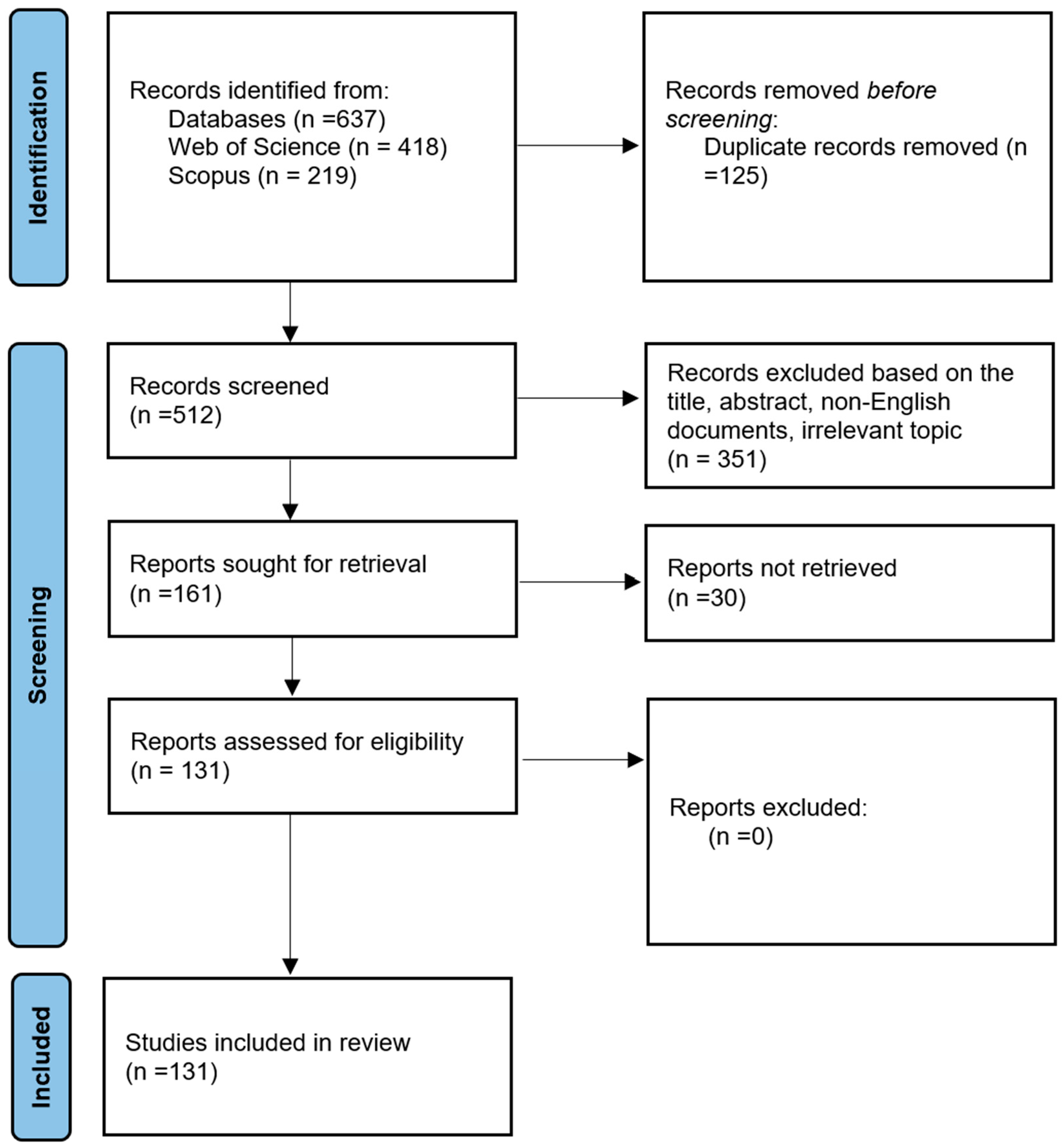

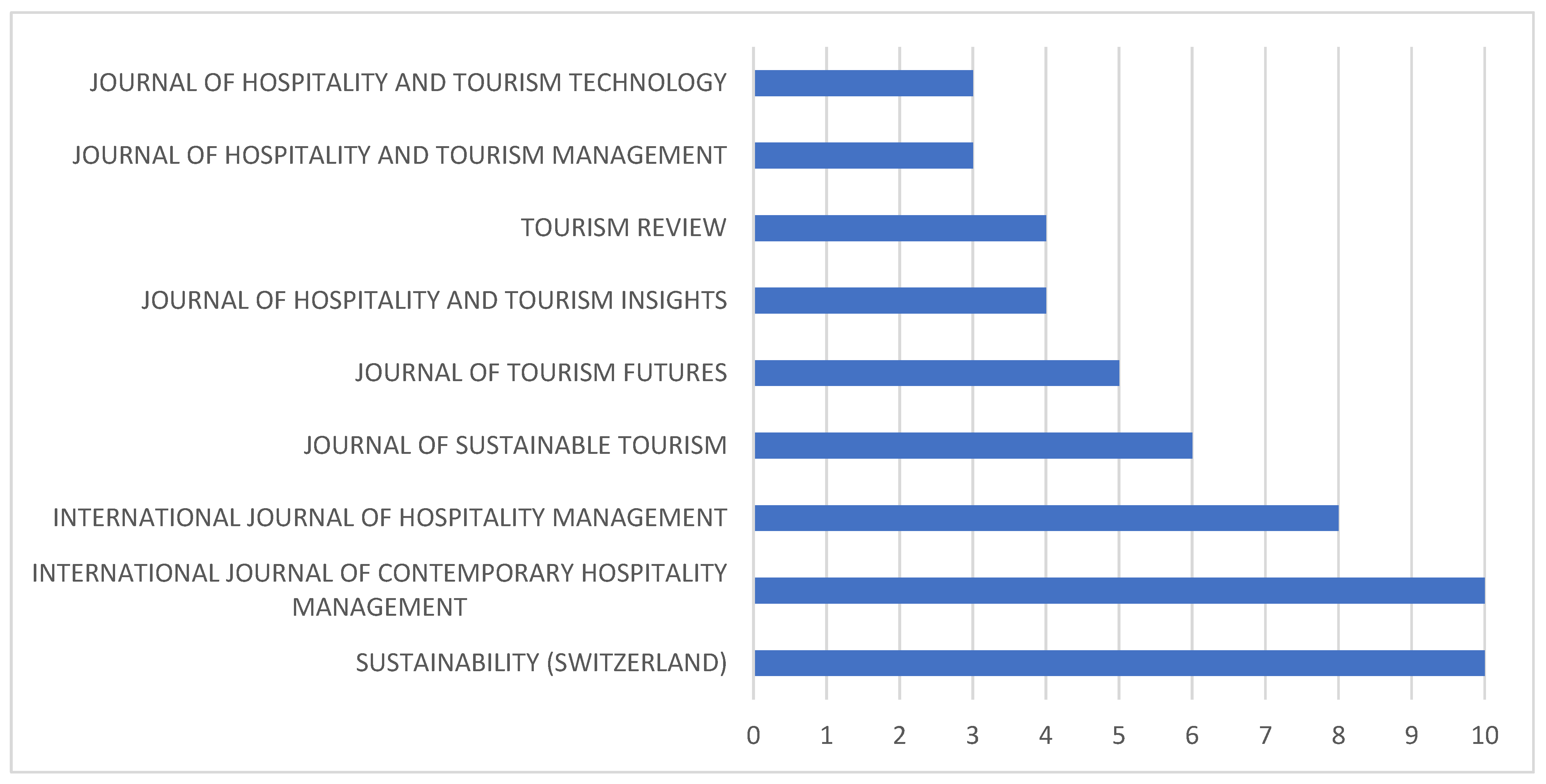
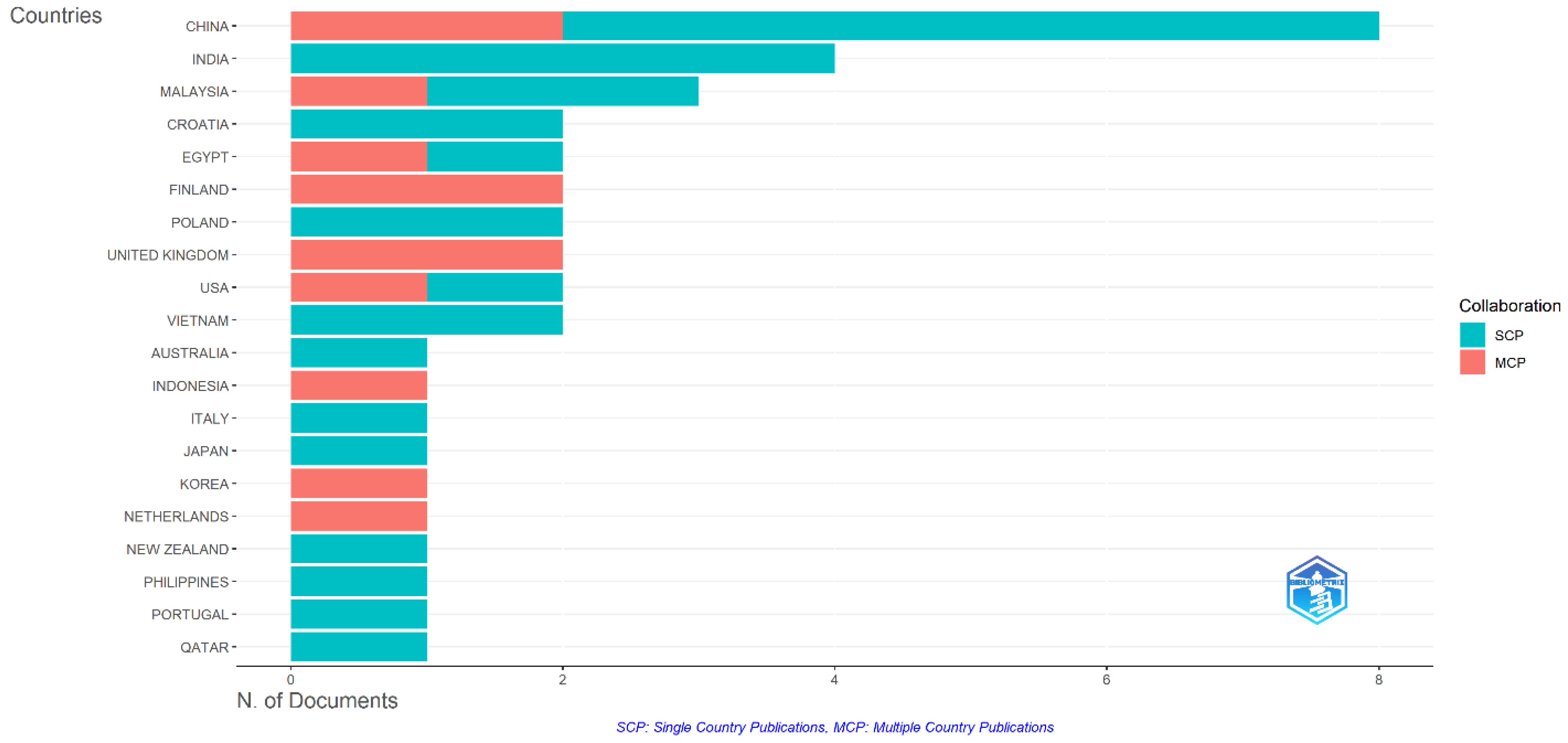
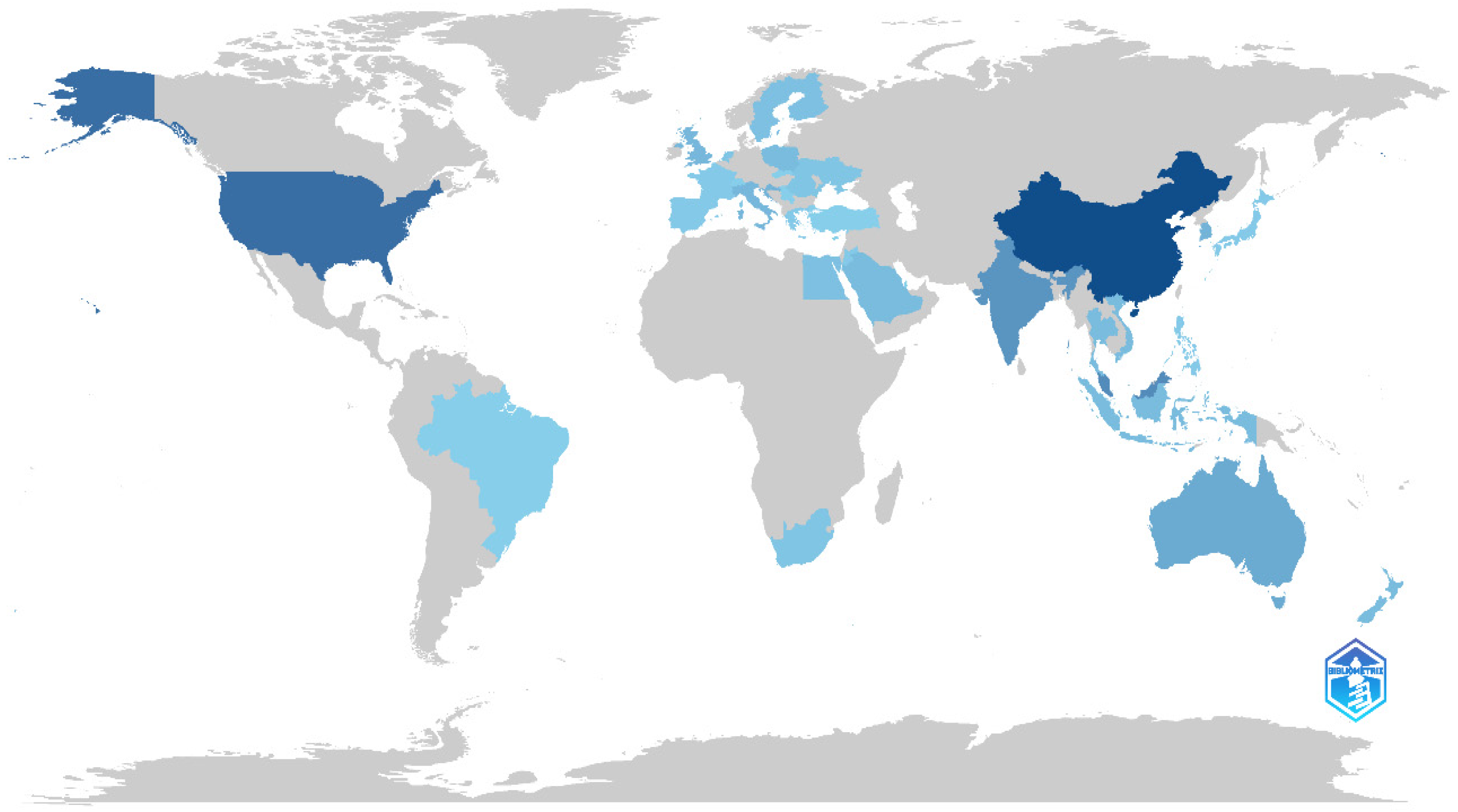


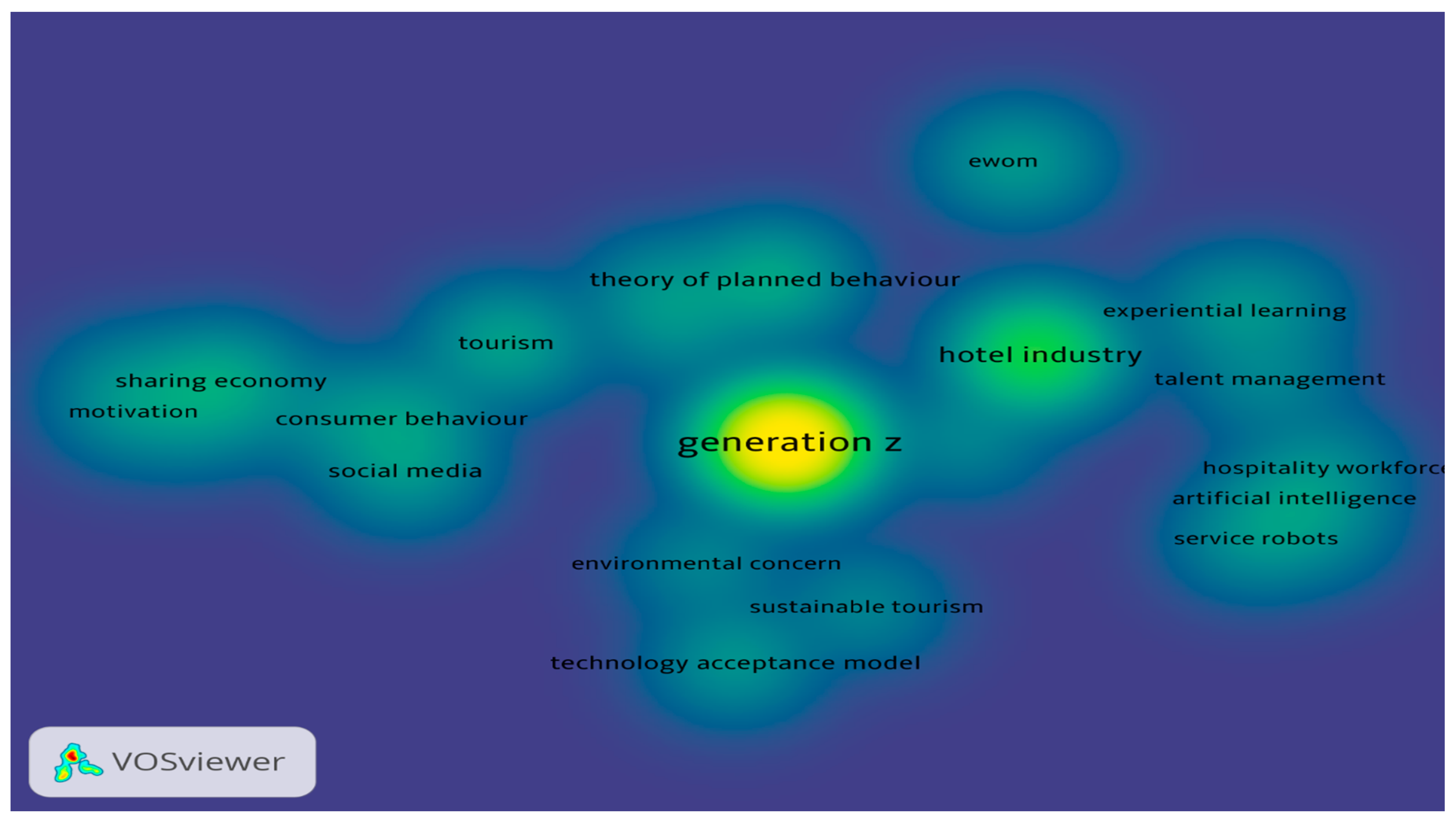
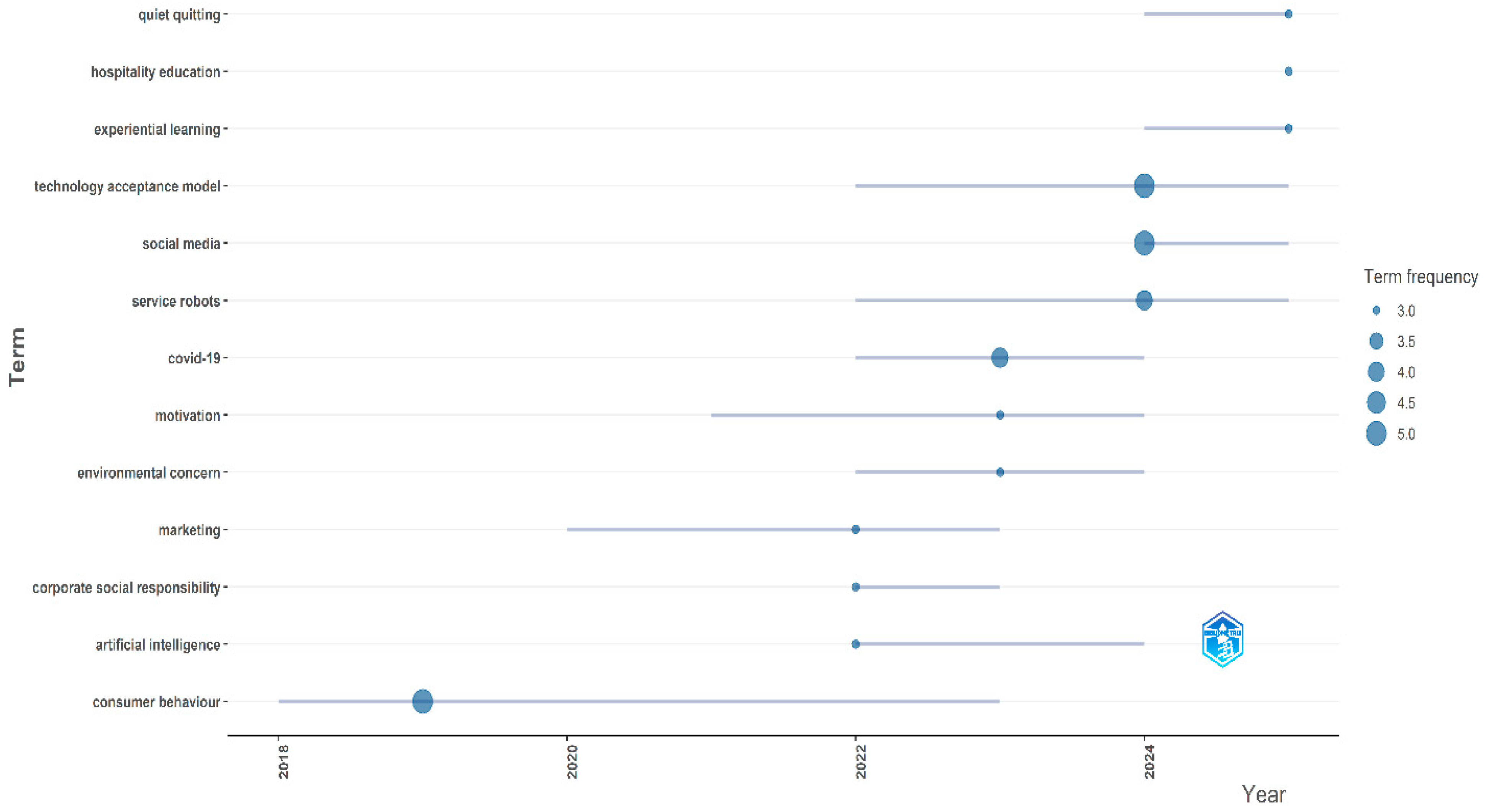
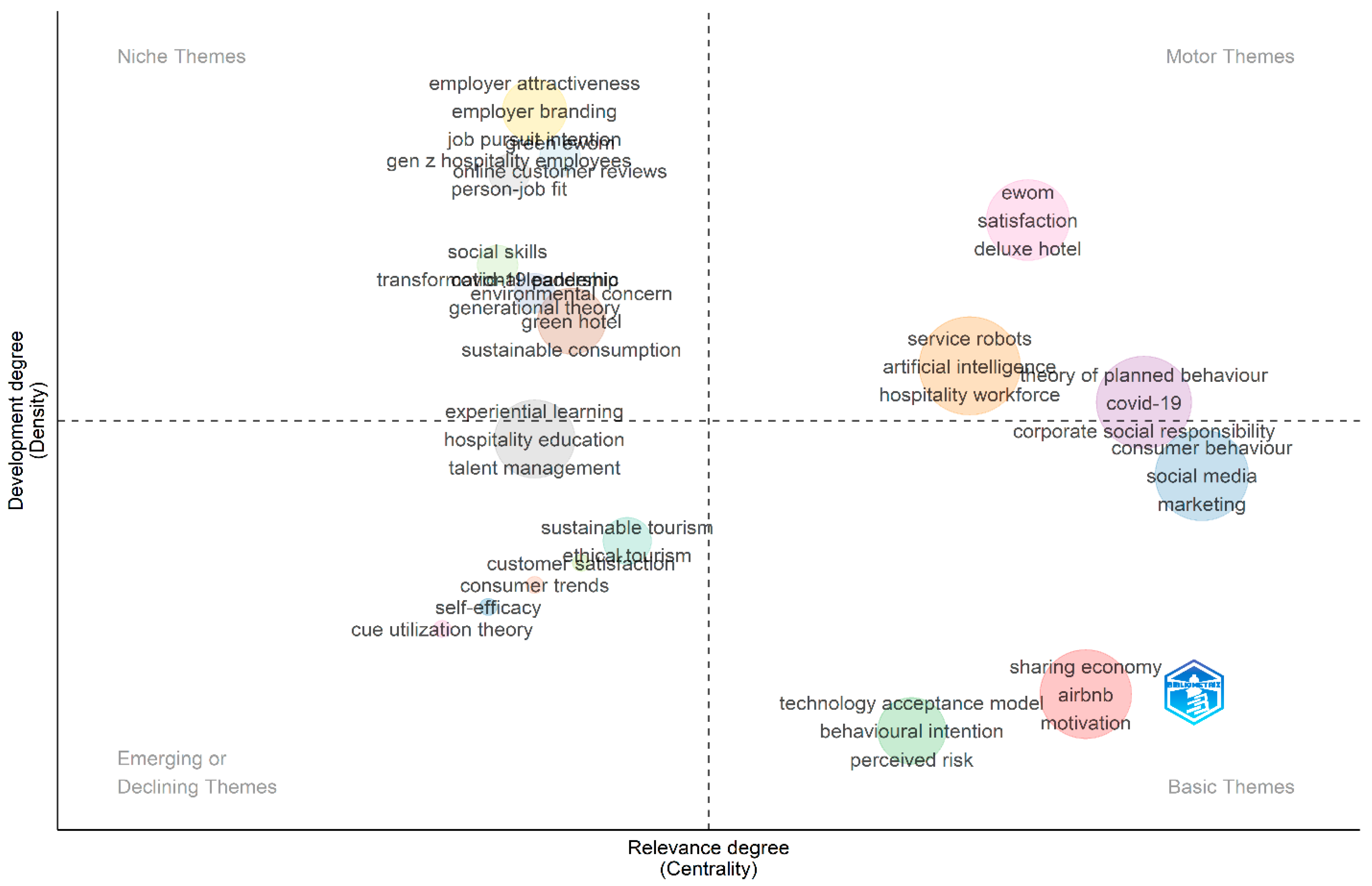
| Category | Gen Z Characteristic/Behavior | Key Insights & Evidence |
|---|---|---|
| Accommodation Preferences | Tech-enabled, value-driven, and flexible; favor unique experiences and affordability over traditional luxury. | Gen Z prefers digital booking, affordable stays, and unique or local experiences over traditional hotels. They are open to extended-stay and flexible lodging options. Cleanliness, security, and sustainability are critical in decision-making. |
| Sustainability & Ethics | Environmentally conscious but exhibit an “attitude-behavior gap”; value brands with visible green practices. | Gen Z is willing to pay more for eco-friendly accommodations. They seek pro-ecological practices, but actual sustainable behavior is sometimes inconsistent due to cost/convenience. Corporate social responsibility (CRS) and practical sustainability messaging are influential. |
| Technology Adoption | Digital natives; value seamless tech integration (mobile apps, AI, smart hotels, chatbots, social media). | Gen Z expects digital-first experiences, e.g., facial recognition check-ins, mobile bookings, and smart room features. They are receptive to RFID and AI, with privacy and security concerns as limiting factors. |
| Social media & Digital Influence | Rely heavily on UGC, influencer content, and peer reviews for travel decisions; seek authenticity and engagement. | Social media and eWOM are primary sources of information; influencer-driven marketing is more effective than traditional ads. Gen Z values interactive, visually driven platforms and authentic peer experiences over brand-generated content. |
| Workforce Values & Expectations | Seek flexibility, meaningful work, career growth, and positive workplace culture; sensitive to job insecurity and unethical practices. | Gen Z values supportive environments, experiential learning, and work-life balance. Negative experiences (e.g., hazing, burnout) lead to “quiet quitting” or disengagement. Leadership style and CSR initiatives significantly impact job attraction/retention. |
| Leadership & Workplace Dynamics | Prefer transparent, authentic, and supportive leadership; value feedback and open communication. | Authentic leadership increases engagement and psychological capital; transformational leadership and CSR practices are critical for retaining Gen Z talent. Gen Z expects regular feedback, autonomy, and opportunities for skill development. |
| Innovation & Gamification | Respond well to gamified training and interactive, tech-driven development programs. | Gamified internship systems and interactive experiential learning increase engagement, skill development, and retention among Gen Z staff. Innovative approaches to training and development align with Gen Z’s learning preferences. |
| Sharing Economy & P2P Services | Comfortable with sharing economy models (e.g., Airbnb, Uber), valuing flexibility and social interaction. | Gen Z is more open than older generations to sharing accommodations with strangers, driven by trust and intrinsic motivations. Hotels must enhance trust-building and offer hybrid models to compete. |
| Resilience & Adaptability | Demonstrated resilience during crises (e.g., COVID-19); motivated by meaningful work and social contribution. | Gen Z employees in quarantine hotels were motivated by the opportunity to serve the public and find meaning in challenging circumstances. They adapt quickly to new technologies and workplace changes but require support and recognition. |
| Entrepreneurship & Innovation | Show strong entrepreneurial intentions, especially in tourism and hospitality, resilient even in economic downturns. | Work experience and gender influence entrepreneurial intentions more than external crises. Gen Z is willing to innovate within and outside traditional hotel models, driving new business concepts. |
| Authors | Articles |
|---|---|
| Goh E | 5 |
| Nguyen T | 5 |
| Seyfi S | 4 |
| Aujirapongpan S | 3 |
| Imjai N | 3 |
| Liu J | 3 |
| Sun J | 3 |
| Balakrishnan J | 2 |
| Baum T | 2 |
| Chang J | 2 |
| Affiliation | Articles |
|---|---|
| Edith Cowan University | 5 |
| Ucsi University | 5 |
| University of Central Florida | 5 |
| Macau University of Science and Technology | 4 |
| Purdue University | 4 |
| University of Johannesburg | 4 |
| University of Nevada Las Vegas | 4 |
| University of Oulu | 4 |
| California State Polytechnic University | 3 |
| Khmelnytskyi Cooperative Trade and Economic Institute | 3 |
| Rank | Author(s) and Year | Article Title | Journal Title | Total Citations | TC * per Year | Normalized TC |
|---|---|---|---|---|---|---|
| 1 | Goh & Lee [23] | A workforce to be reckoned with: The emerging pivotal Gen Z hospitality workforce | International Journal of Hospitality Management | 264 | 33 | 3.14 |
| 2 | Goh & Jie [73] | To waste or not to waste: Exploring motivational factors of Gen Z hospitality employees towards food wastage in the hospitality industry | International Journal of Hospitality Management | 151 | 21.57 | 1.46 |
| 3 | Goh & Okumus [24] | Avoiding the hospitality workforce bubble: Strategies to attract and retain Gen Z talent in the hospitality workforce | Tourism Management Perspectives | 151 | 25.17 | 3.30 |
| 4 | Sakdiyakorn et al. [33] | Understanding Gen Z through collective consciousness: Impacts for hospitality work and employment | International Journal of Hospitality Management | 126 | 25.20 | 2.42 |
| 5 | Robinson & Schänzel [32] | A tourism inflex: Gen Z travel experiences | Journal Of Tourism Futures | 94 | 13.43 | 0.91 |
| 6 | Goh & Baum [10] | Job perceptions of Gen Z hotel employees towards working in COVID-19 quarantine hotels: the role of meaningful work | International Journal of Contemporary Hospitality Management | 92 | 18.40 | 1.77 |
| 7 | Vitezić & Perić [38] | Artificial intelligence acceptance in services: connecting with Gen Z | Service Industries Journal | 85 | 17 | 1.63 |
| 8 | Yu et al. [74] | Robots can’t take my job: antecedents and outcomes of gen Z employees’ service robot risk awareness | International Journal of Contemporary Hospitality Management | 76 | 19 | 2.68 |
| 9 | D’arco et al. [75] | Exploring the pro-environmental behavioral intention of Gen Z in the tourism context: the role of injunctive social norms and personal norms | Journal Of Sustainable Tourism | 71 | 71 | 14.36 |
| 10 | Ribeiro et al. [42] | Determinants of Gen Z pro-environmental travel behavior: the moderating role of green consumption values | Journal Of Sustainable Tourism | 70 | 70 | 14.15 |
Disclaimer/Publisher’s Note: The statements, opinions and data contained in all publications are solely those of the individual author(s) and contributor(s) and not of MDPI and/or the editor(s). MDPI and/or the editor(s) disclaim responsibility for any injury to people or property resulting from any ideas, methods, instructions or products referred to in the content. |
© 2025 by the authors. Licensee MDPI, Basel, Switzerland. This article is an open access article distributed under the terms and conditions of the Creative Commons Attribution (CC BY) license (https://creativecommons.org/licenses/by/4.0/).
Share and Cite
Toboso-Gómez, J.D.; Mercadé-Melé, P.; Almeida-García, F.; Gorji, A.S. A Systematic Review and Bibliometric Analysis of Studies on Generation Z and the Hotel Industry: Past, Present and Future Agenda. Systems 2025, 13, 989. https://doi.org/10.3390/systems13110989
Toboso-Gómez JD, Mercadé-Melé P, Almeida-García F, Gorji AS. A Systematic Review and Bibliometric Analysis of Studies on Generation Z and the Hotel Industry: Past, Present and Future Agenda. Systems. 2025; 13(11):989. https://doi.org/10.3390/systems13110989
Chicago/Turabian StyleToboso-Gómez, José Damian, Pere Mercadé-Melé, Fernando Almeida-García, and Abolfazl Siyamiyan Gorji. 2025. "A Systematic Review and Bibliometric Analysis of Studies on Generation Z and the Hotel Industry: Past, Present and Future Agenda" Systems 13, no. 11: 989. https://doi.org/10.3390/systems13110989
APA StyleToboso-Gómez, J. D., Mercadé-Melé, P., Almeida-García, F., & Gorji, A. S. (2025). A Systematic Review and Bibliometric Analysis of Studies on Generation Z and the Hotel Industry: Past, Present and Future Agenda. Systems, 13(11), 989. https://doi.org/10.3390/systems13110989








